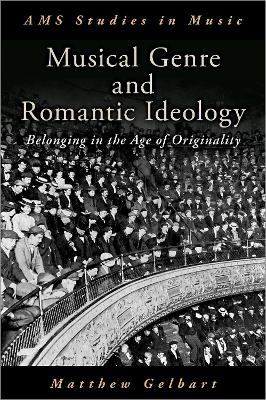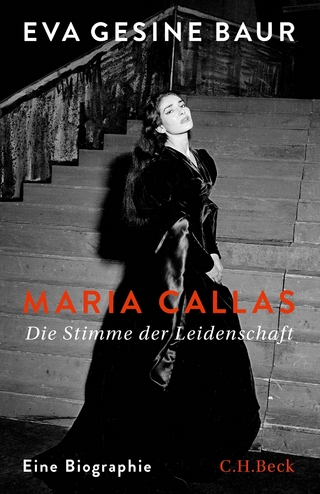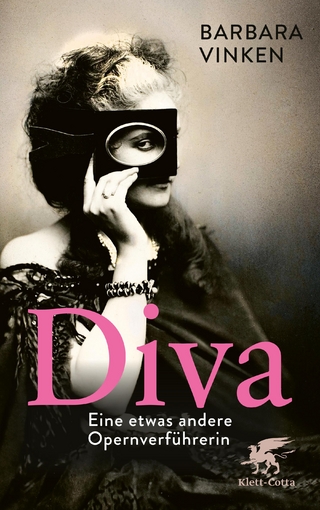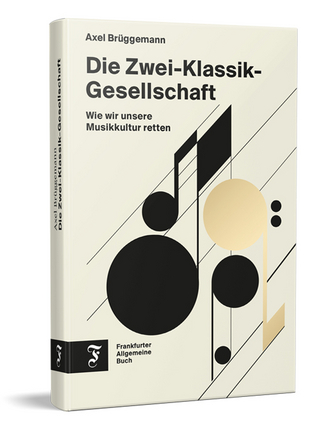
Musical Genre and Romantic Ideology
Belonging in the Age of Originality
Seiten
2022
Oxford University Press Inc (Verlag)
978-0-19-064692-9 (ISBN)
Oxford University Press Inc (Verlag)
978-0-19-064692-9 (ISBN)
Musical Genre and Romantic Ideology charts the workings and legacies of Romantic artistic values such as originality and anti-commercialism in relation to musical genre. In case studies from across nineteenth-century Europe, author Matthew Gelbart explores the processes through which composers, performers, critics, and listeners gave sounds, and themselves, a sense of belonging.
European Romanticism gave rise to a powerful discourse equating genres to constrictive rules and forms that great art should transcend; and yet without the categories and intertextual references we hold in our minds, “music” would be meaningless noise. Musical Genre and Romantic Ideology teases out that paradox, charting the workings and legacies of Romantic artistic values such as originality and anti-commercialism in relation to musical genre. Genre's persistent power was amplified by music's inevitably practical social, spatial, and institutional frames. Furthermore, starting in the nineteenth century, all music, even the most anti-commercial, was stamped by its relationship to the marketplace, entrenching associations between genres and target publics (whether based on ideas of nation, gender, class, or more subtle aspects of identity). These newly strengthened correlations made genre, if anything, more potent rather than less, despite Romantic claims.
In case studies from across nineteenth-century Europe engaging with canonical music by Bizet, Chopin, Verdi, Wagner, and Brahms, alongside representative genres such as opéra-comique and the piano ballade, Matthew Gelbart explores the processes through which composers, performers, critics, and listeners gave sounds, and themselves, a sense of belonging. He examines genre vocabulary and discourse, the force of generic titles, how avant-garde music is absorbed through and into familiar categories, and how interpretation can be bolstered or undercut by genre agreements. Even in a modern world where transcription and sound recording can take any music into an infinite array of new spatial and social situations, we are still locked in the Romantics' ambivalent tussle with genre.
European Romanticism gave rise to a powerful discourse equating genres to constrictive rules and forms that great art should transcend; and yet without the categories and intertextual references we hold in our minds, “music” would be meaningless noise. Musical Genre and Romantic Ideology teases out that paradox, charting the workings and legacies of Romantic artistic values such as originality and anti-commercialism in relation to musical genre. Genre's persistent power was amplified by music's inevitably practical social, spatial, and institutional frames. Furthermore, starting in the nineteenth century, all music, even the most anti-commercial, was stamped by its relationship to the marketplace, entrenching associations between genres and target publics (whether based on ideas of nation, gender, class, or more subtle aspects of identity). These newly strengthened correlations made genre, if anything, more potent rather than less, despite Romantic claims.
In case studies from across nineteenth-century Europe engaging with canonical music by Bizet, Chopin, Verdi, Wagner, and Brahms, alongside representative genres such as opéra-comique and the piano ballade, Matthew Gelbart explores the processes through which composers, performers, critics, and listeners gave sounds, and themselves, a sense of belonging. He examines genre vocabulary and discourse, the force of generic titles, how avant-garde music is absorbed through and into familiar categories, and how interpretation can be bolstered or undercut by genre agreements. Even in a modern world where transcription and sound recording can take any music into an infinite array of new spatial and social situations, we are still locked in the Romantics' ambivalent tussle with genre.
Matthew Gelbart is Associate Professor of Music at Fordham University. Following his previous book The Invention of "Folk Music" and "Art Music": Emerging Categories from Ossian to Wagner and his work on nineteenth-century European music and twentieth-century popular music, he is interested in how we make meaning from music through categories and identities.
Prologue
Romantic Generic Legacies
PART I: Words, Ideas, Systems, Ideology
CHAPTER 1
Music's Worldliness
CHAPTER 2
Word and Concept: The Uses and Abuses of
| Erscheinungsdatum | 03.10.2022 |
|---|---|
| Reihe/Serie | AMS STUDIES IN MUSIC SERIES |
| Verlagsort | New York |
| Sprache | englisch |
| Maße | 239 x 164 mm |
| Gewicht | 953 g |
| Themenwelt | Kunst / Musik / Theater ► Musik ► Klassik / Oper / Musical |
| Kunst / Musik / Theater ► Musik ► Musiktheorie / Musiklehre | |
| Geisteswissenschaften ► Geschichte ► Regional- / Ländergeschichte | |
| ISBN-10 | 0-19-064692-6 / 0190646926 |
| ISBN-13 | 978-0-19-064692-9 / 9780190646929 |
| Zustand | Neuware |
| Haben Sie eine Frage zum Produkt? |
Mehr entdecken
aus dem Bereich
aus dem Bereich
wie wir unsere Musikkultur retten
Buch | Hardcover (2023)
Frankfurter Allgemeine Buch (Verlag)
24,00 €


